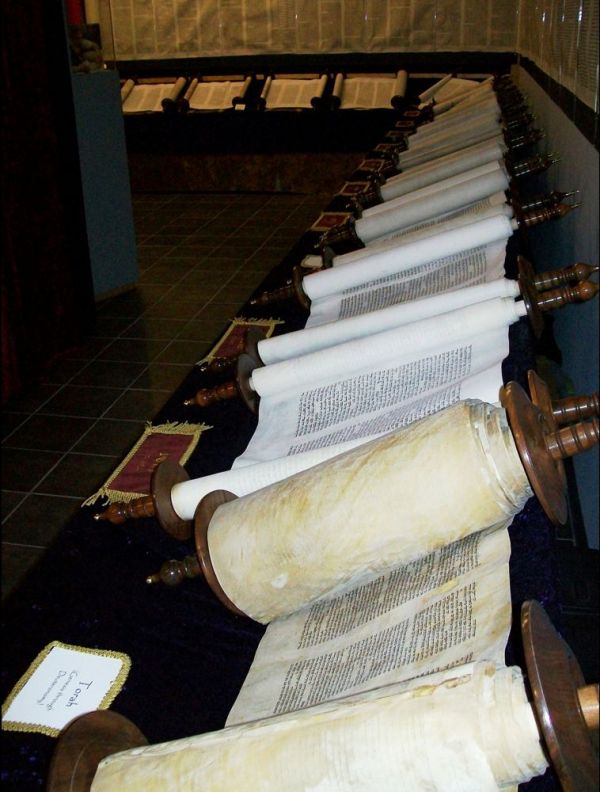(Mk 10:35-45)
Mark 10:35 And James and John, the sons of Zebedee, came to him, saying, "Master, we want you to do to us whatever we ask of you.
Mark 10:36 And he said to them, "What do you want me to do for you?" They answered him:
Mark 10:37 "Grant us to sit in your glory one at your right hand and one at your left."
Mark 10:38 Jesus said to them, "You do not know what you ask. Can you drink the cup that I drink, or receive the baptism with which I am baptised?" They answered him, "We can."
Mark 10:39 And Jesus said, "The cup that I drink you will also drink, and the baptism that I receive you will also receive.
Mark 10:40 But to sit at my right hand or at my left is not for me to grant; it is for those for whom it has been prepared."
v. 35 opens by presenting the protagonists of this episode and their request, which is narratively juxtaposed with the announcement of the passion, death and resurrection of Jesus, thus creating a jarring contrast between the interests of Jesus, who is speaking in dramatic terms of his imminent end, and those of the two brothers, who are thinking, instead, of grabbing the first seats.
James and John, two eminent figures, ask: "Grant us to sit in your glory one at your right hand and one at your left". It is a request for an investiture and a power that they want to share with Jesus. That "sit in your glory" refers not so much to the resurrection, the meaning of which was essentially unknown to them. The glory they were thinking of was the establishment of the new Kingdom of Israel in historical terms by Jesus. A hope this they nurtured to the very end. The "sit" indicates the position of privilege over others. What is required here, in essence, is for Jesus to recognise the two of them as heirs of his power and, therefore, to be his successors. An official and direct acknowledgement by Jesus in front of everyone would have gotten any discussion of "who is the greatest" out of the way. Hence the indignation of the other ten apostles, who had the object of their desires taken away from under their noses: "On hearing this, the other ten became indignant with James and John".
Jesus' response is divided into two parts. It opens by emphasising their non-knowledge: "You do not know what you ask" (v. 38). The request the two brothers had made to Jesus concerned temporal power. A request that shows how they had not yet truly understood what it meant that Jesus is "the Christ", nor what "Son of God" meant and what it all entailed. Everything was reparametered to their capacity of understanding, which could not transcend the horizontal level of Jesus' mission and the figure of Jesus himself.
The answer, therefore, continues in its second part, bringing everything back to the dramatic reality that was about to take place and that becomes central to this section: "Can you drink the cup that I drink, or receive the baptism with which I am baptised?" Jesus, therefore, does not refuse their request, but sets as a "conditio sine qua non" to reach the glory to which they aspire, the way of the cross. The "drinking of the cup" and "being baptised with the baptism with which I shall be baptised", are two metaphorical expressions that allude to events to which Jesus must be subjected in order to attain that glory that he does not claim for himself, but which the Father gives him, inasmuch as he has fully accomplished his will.
The response of the two brothers is astounding, because once again it shows how they have not understood what Jesus is talking about; and almost as if it were a game they reply: "We can" (v. 38).
Here too Jesus' response is twofold. In the first part of the response (v. 39) they are told that they too will be associated with the fate of their Master. Mark brings back the two expressions of the cup and the baptism, referring first to Jesus and now to James and John, suggesting that the two of them [but with them all the Twelve and in communion with them all believers] will also be associated with the same destiny as Jesus, for "there is no greater servant than his lord".
The second part of the answer (v. 40) gives a glimpse of how the glory of Jesus does not depend on Jesus, but all is deferred to the Father. A glory that is destined "for those for whom it has been prepared". They are those who have chosen the way of the cross and have been associated with Jesus' death and, because of this, also with his resurrection.
Argentino Quintavalle, author of the books
- Revelation - exegetical commentary
- The Apostle Paul and the Judaizers - Law or Gospel?Jesus Christ true God and true Man in the Trinitarian mystery
The prophetic discourse of Jesus (Matthew 24-25)
All generations will call me blessed
Catholics and Protestants compared - In defence of the faith
(Buyable on Amazon)




